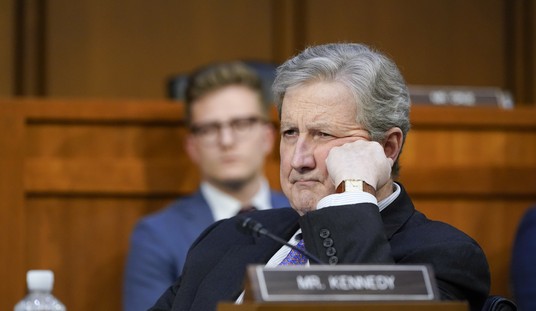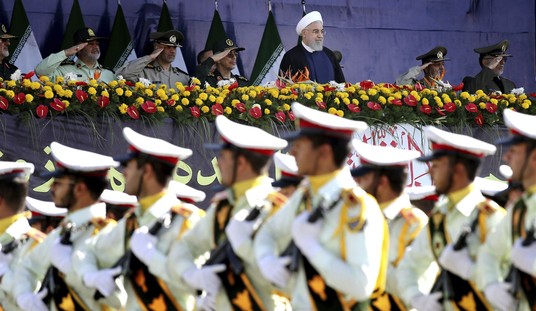One of the greatest accomplishments of the Trump administration was to raise public awareness of the threat posed to the US and the world by the authoritarian Communist regime in China – the People’s Republic of China. Pundits and average Americans are beginning to understand the full spectrum ChiCom threat: penetration of all US institutions, rampant economic espionage, buying off US politicians in both major parties, and a continuing military buildup facilitated by a gargantuan trade surplus with the US enabled by failed and erroneous American policies.
Before getting into US-China competition in the South and East China Seas, some additional background is provided as follows.
The US foreign policy establishment – with the able assistance of Henry Kissinger’s “China Hands” since Communist China was “opened” in 1972 – has facilitated the economic and military growth of Communist China through misguided policies theoretically aimed at “bringing a rogue nation into the international family of nations.” As if promoting Western values, e.g., democracy, free enterprise, and the rule of law has ever worked with a Communist government. Globalist free trade policies promoted by the China hands and US political class bribed by the ChiComs over the years destroyed the Upper Midwest. That is because globalism spreads communism worldwide while corrupting all human institutions, as wonderfully described here.
These actions, and more, red-pilled Americans about ChiCom intentions:
- Uyghur genocide
- Crushing Hong Kong’s democracy
- Saber-rattling over Taiwan (one example here among many!)
- Another border skirmish with India
- Saber-rattling intimidation of the Philippines over Julian Felipe Reef (the ChiComs call it Whitsun Reef)
- Suppressing the origin of – and clinical data about – the ChiCom virus (even CBS’s 60 Minutes finally got it right!)
And the recent bullying of the Hologram’s diplomatic delegation by ChiComs on US soil in Anchorage, AK, was an excellent reminder of ChiCom intentions planned for the next four years.
The awareness of the Chinese threat to US national security has led a number of analysts and commentators, e.g., at the Heritage Foundation, Nikkei Asia, and the South China Morning Post, to conclude that the competition is as much ideological as it is about military and economic matters. Authoritarian capitalism versus free enterprise. Authoritarian communism versus democratic republicanism. But that competition ultimately gets down to a question of military might and the will to compete. The Trump administration demonstrated the will to compete with Communist China. The Biden regime is in its early stages of reversing seemingly every Trump policy. Will that reversal pertain to China policy? Entirely possible given that many of Biden’s political appointees are either pro-China based on past experience or compromised by Beijing through corruption.
The likely flashpoint for any political-military confrontation between Communist China and the US will be in the South China Sea or East China Sea. The Congressional Research Service has recently released a report to Congress that summarizes the challenges in that part of the world. Here is an excerpt from the summary of that report:
In an international security environment described as one of renewed great power competition, the South China Sea (SCS) has emerged as an arena of U.S.-China strategic competition. U.S.-China strategic competition in the SCS formed an element of the Trump Administration’s confrontational overall approach toward China and its efforts for promoting its construct for the Indo-Pacific region, called the Free and Open Indo-Pacific (FOIP).
China’s actions in the SCS in recent years—including extensive island-building and base-construction activities at sites that it occupies in the Spratly Islands, as well as actions by its maritime forces to assert China’s claims against competing claims by regional neighbors such as the Philippines and Vietnam—have heightened concerns among U.S. observers that China is gaining effective control of the SCS, an area of strategic, political, and economic importance to the United States and its allies and partners. Actions by China’s maritime forces at the Japan-administered Senkaku Islands in the East China Sea (ECS) are another concern for U.S. observers. Chinese domination of China’s near-seas region—meaning the SCS and ECS, along with the Yellow Sea—could substantially affect U.S. strategic, political, and economic interests in the Indo-Pacific region and elsewhere.
Potential general U.S. goals for U.S.-China strategic competition in the SCS and ECS include but are not necessarily limited to the following: fulfilling U.S. security commitments in the Western Pacific, including treaty commitments to Japan and the Philippines; maintaining and enhancing the U.S.-led security architecture in the Western Pacific, including U.S. security relationships with treaty allies and partner states; maintaining a regional balance of power favorable to the United States and its allies and partners; defending the principle of peaceful resolution of disputes and resisting the emergence of an alternative “might-makes-right” approach to international affairs; defending the principle of freedom of the seas, also sometimes called freedom of navigation; preventing China from becoming a regional hegemon in East Asia; and pursing these goals as part of a larger U.S. strategy for competing strategically and managing relations with China.
Potential specific U.S. goals for U.S.-China strategic competition in the SCS and ECS include but are not necessarily limited to the following: dissuading China from carrying out additional base-construction activities in the SCS, moving additional military personnel, equipment, and supplies to bases at sites that it occupies in the SCS, initiating island-building or base-construction activities at Scarborough Shoal in the SCS, declaring straight baselines around land features it claims in the SCS, or declaring an air defense identification zone (ADIZ) over the SCS; and encouraging China to reduce or end operations by its maritime forces at the Senkaku Islands in the ECS, halt actions intended to put pressure against Philippine-occupied sites in the Spratly Islands, provide greater access by Philippine fisherman to waters surrounding Scarborough Shoal or in the Spratly Islands, adopt the U.S./Western definition regarding freedom of the seas, and accept and abide by the July 2016 tribunal award in the SCS arbitration case involving the Philippines and China.
The issue for Congress is whether and how the Biden Administration’s strategy for competing strategically with China in the SCS and ECS will differ from the Trump Administration’s strategy, whether the Biden Administration’s strategy is appropriate and correctly resourced, and whether Congress should approve, reject, or modify the strategy, the level of resources for implementing it, or both.
The entire report is a must-read in order to understand the stakes, goals, and objectives that are involved in the region. What will a Democrat-dominated Congress and the Biden regime do, given that they are internally focused on ramming progressive domestic legislation into public law? If the Anchorage debacle is any clue as to China’s near-term objectives, then a comprehensive strategy to combat that aggression is of vital importance. However, Biden’s foreign policy team is perhaps even weaker and more compromised than was Obama’s team. That’s a harbinger of bad outcomes for US national security, as well as the security of US allies in East Asia — unless the American people keep the political class focused properly on the PRC!
The end.












Join the conversation as a VIP Member